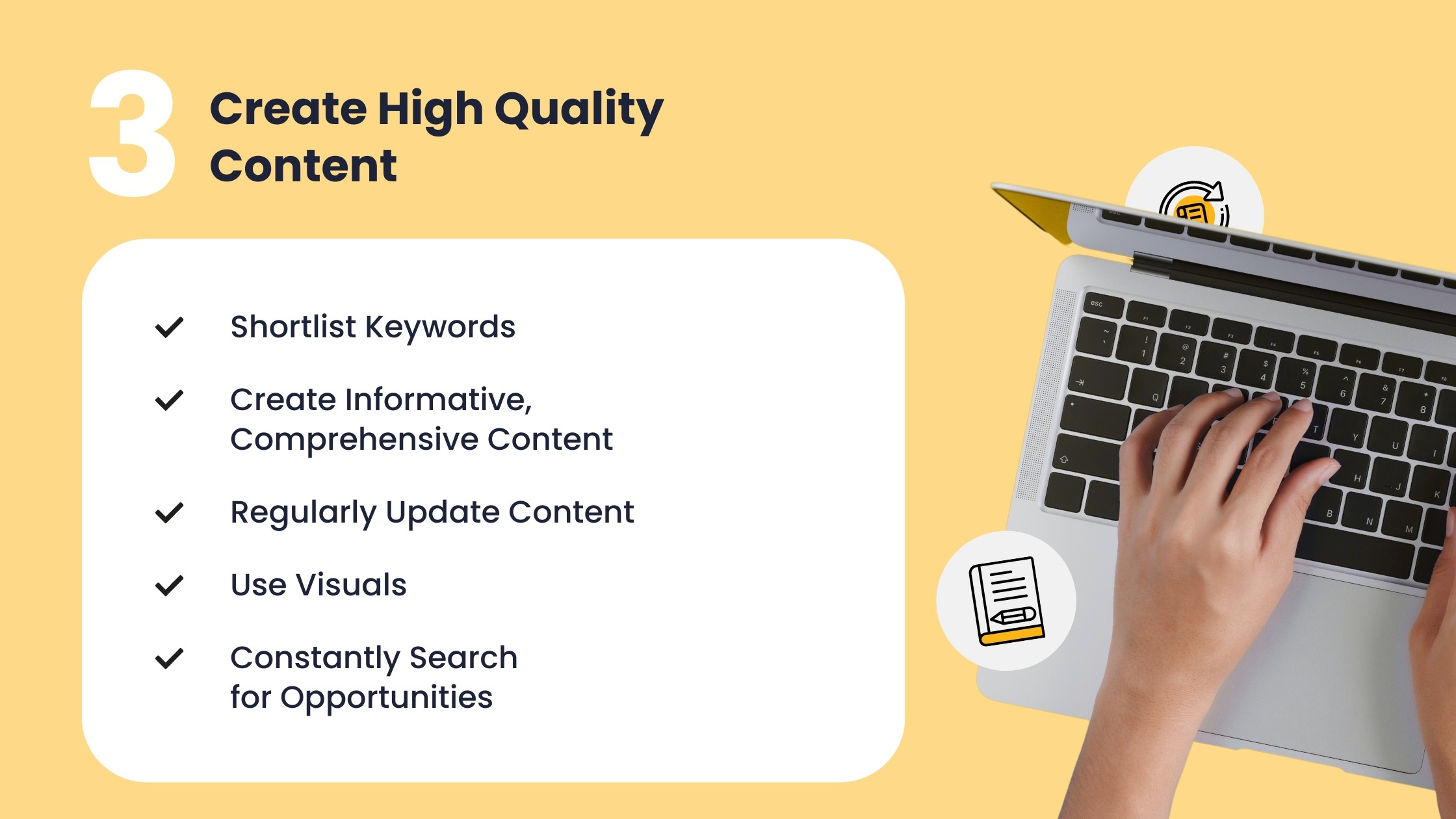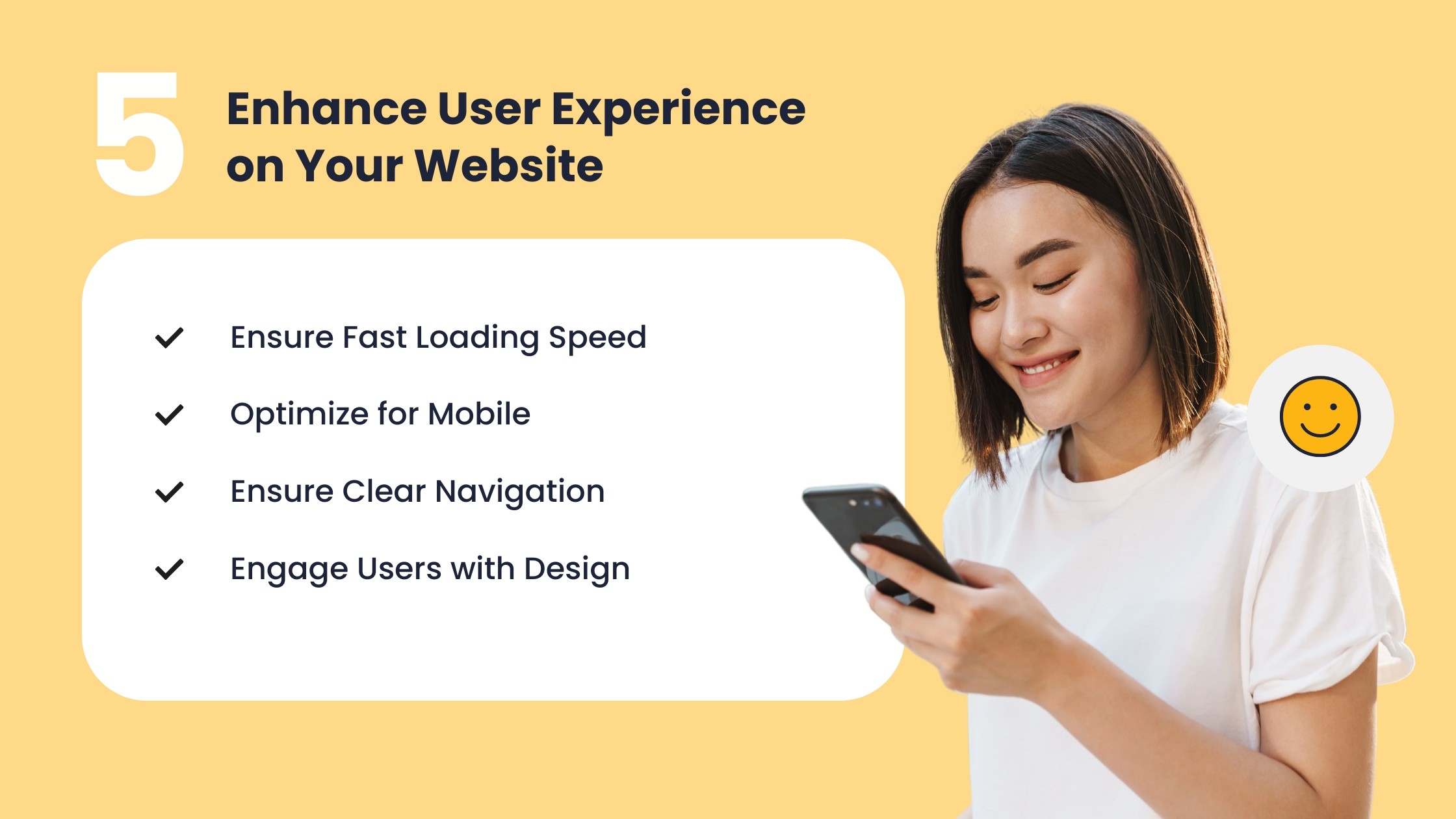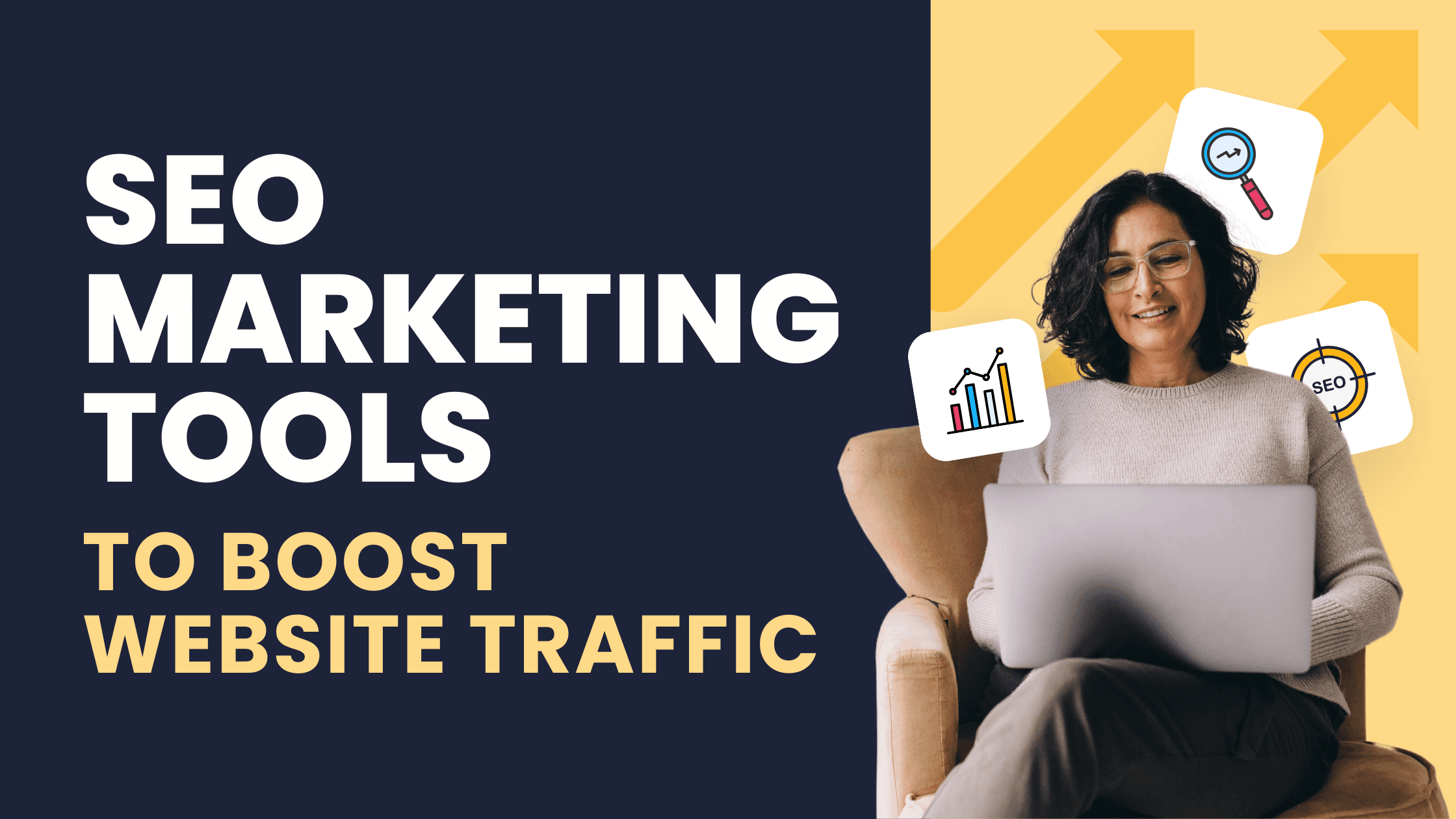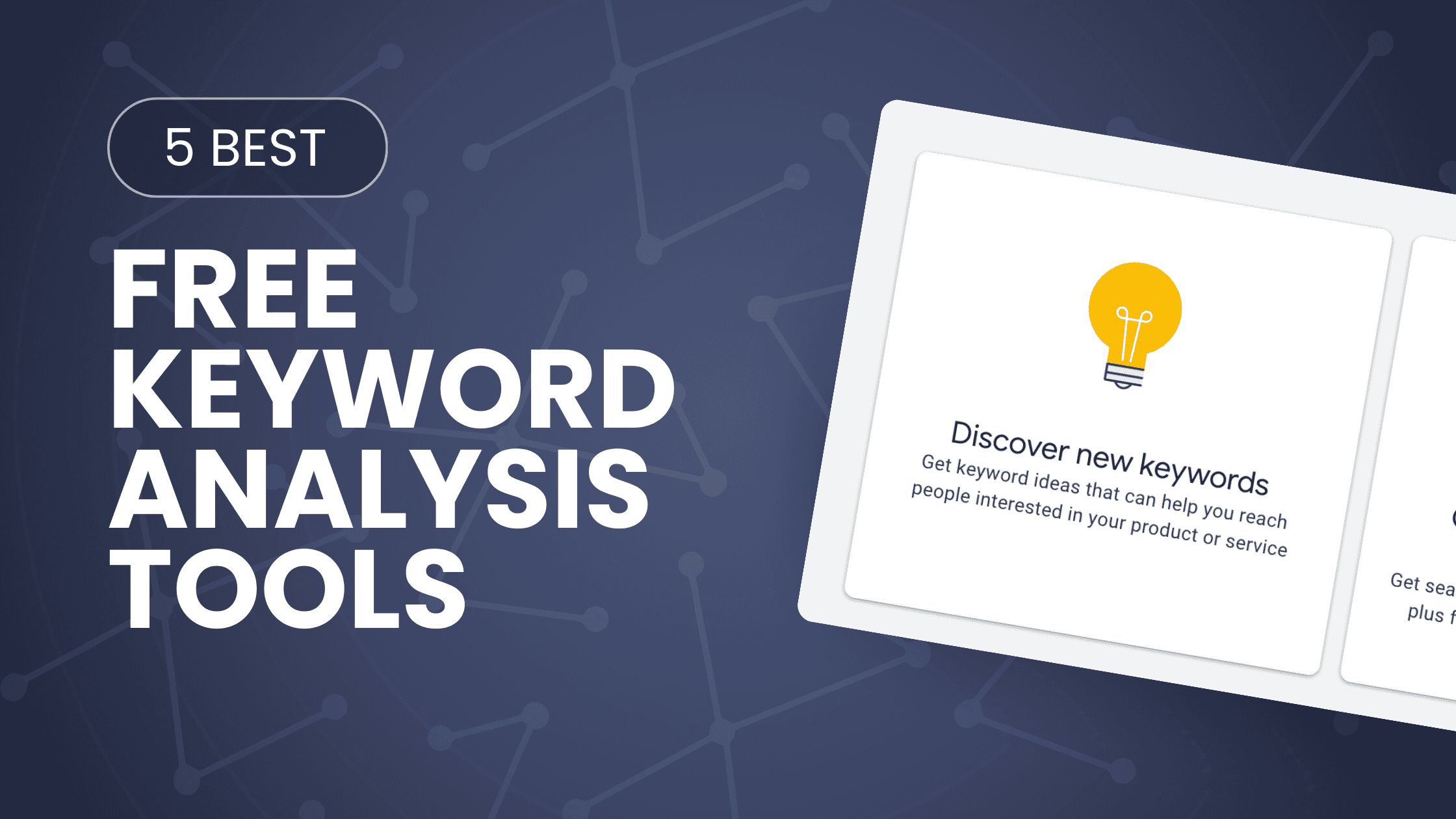Search Engine Optimization
How to Get Your Website to the Top of Google Search
May 15, 2024
Want your business to succeed? You need to know how to get your website to the top of Google search results.
In 2024, it doesn’t matter if you have an offline store, you’re a small business owner, or an e-commerce entrepreneur, ranking higher on google search can significantly increase your visibility. This drives more traffic to your website and boosts your revenue. The techniques or process through which you improve google ranking of your website is called Search Engine Optimization, or SEO for short. If you’d like to improve your understanding of SEO, we recommend reading What is SEO. Now if you’re asking yourself how to get my website on top of Google search, this guide provides actionable strategies to help you navigate the complex world of SEO to rank higher on Google.
To get your website to the top of Google search results, you can start by taking small easy steps. Firstly, conducting thorough keyword research for Google is essential. Identifying the right keywords to target can impact your SEO significantly. Next, optimizing on-page SEO elements such as meta titles, meta descriptions, and header tags ensures your content is Google ranking-friendly. High-quality content creation is another essential element of SEO, offering valuable information that meets user intent and keeps visitors engaged. Building high-quality backlinks from high DA websites can further enhance your own site's domain authority and visibility. Lastly, enhancing user experience (UX) ensures visitors stay longer and engage more with your website, signaling to Google that your site is valuable.
By implementing these five key strategies that can help get your website to the top of Google -
Keyword research,
On-page optimization,
High-quality content creation,
Backlink building, and
Improving user experience,
you can significantly improve your ranking in Google search results. Let's deep-dive into each of these steps to understand actionable items you can do right away to rank your website on Google.
How to Get Your Website to the Top of Google Search in 5 Steps
1. Conduct Keyword Research Relevant to Your Website

Keywords are the cornerstone of SEO. They are essentially phrases that users search for on Google. To understand Keywords better, read the ‘What are Keywords and Backlinks’ section in our SEO for Beginners guide.
Keyword Research helps you understand what terms your target audience is searching for on Google. This in turn should direct your approach of how to position your website and content to meet their needs.
Actionable steps on how to conduct keyword research to get your website to the top of Google:
Start by researching terms describing your business: Use free keyword research tools like Google Keyword Planner, Ahrefs, or SEMrush to start your keyword research. Put in the general phrases related to your business, and analyse the keywords and search volumes of these keywords.
Identify Primary Keywords: Identify the primary keywords that are most relevant to your business, and also have high search volumes.
Analyze Competitors: Look at competitor websites to see what keywords they rank for. You can also use keyword research tools to analyze your competitor websites and identify gaps.
Focus on Long-Tail Keywords: Long-tail keywords are more specific and less competitive, making it easier to rank higher. For example, instead of targeting "SEO" use "local SEO for small businesses." Shortlist more long tail keywords for content.
Organise Ideas: Categorize keywords based on distinct ideas (informational, navigational, transactional) to use these ideas for content later.
2. Optimize On-Page SEO for All Pages

Once you have conducted keyword research, the next step is incorporating these keywords into your website such that Google can view, analyse and store your website in conjunction with those keywords. This process is On-Page SEO. On-page SEO involves optimizing individual pages on your website to rank higher and earn more relevant traffic in search engines.
Actionable steps on how to do On-Page SEO to get your website to the top of Google:
Add Meta Title Tags: Write concise titles that incorporate your shortlisted keywords for each page (e.g., "Best Local SEO Tips for Small Businesses"). Add these titles to the meta Title HTML tag of each page.
Add Meta Descriptions: Similar to Meta Titles, craft click-worthy meta descriptions with target keywords to improve click-through rates and add them to the meta Description HTML tags of your pages.
Use Header (h1, h2, h3) Tags: Header tags are HTML tags that help indicate the structure of content and headings in a page. Use H1 tag for the main title of the page, H2 for subheadings, and H3 tag for further subdivisions to structure your content.
Include Keywords in Content: Naturally incorporate keywords in the first 100 words, throughout the body, and in headings.
Add Image Alt Text: Alt Text is ‘alternative text’ tag that can be added to images in HTML. It is used either when images don’t load or for accessibility related concerns. It is also used by Google to understand the content of images within your page. Add descriptive alt text to images, including keywords where appropriate, to improve visibility in image search results.
3. Create High Quality Content

Once your basics are covered, i.e. you have created the main pages of your website and optimized them for On-Page SEO, it’s time to move on to content. High-quality content is critical for SEO. It engages users and answers their questions. But importantly, it establishes your authority in the industry and thus helps in improving your google ranking.
Actionable steps to create high quality content to get your website to the top of Google:
Shortlist Keywords: In your keyword research, you have already created a list of keywords relevant to your business. Now create a content plan around those keywords. Use a mix of high-volume and long tail keywords.
Create Informative, Comprehensive Content: Write in-depth articles incorporating those keywords that provide valuable information and answer common questions in your industry. If possible, create long-form content, such as how-to guides, that cover topics extensively. Aim for articles of 1,500+ words when possible. The average length on content in the top 10 results of Google search is 2000 - 2250 words.
Regularly Update Content: Frequently update your content to keep it current and relevant. If possible, mention dates of updates within the content. Google reads it.
Use Visuals: Try to incorporate images, infographics, and videos to make content more engaging.
Constantly Search for Opportunities: Keep an eye on keywords and respective volumes related to your business to capitalize on new keyword opportunities and create content for such new keywords to get your website to the top of Google for keywords that are not competitive yet.
4. Build High-Quality Backlinks

Along with creating high quality content, you also need to ensure that other websites are linking to your content. Such links are called Backlinks. Read about What are Backlinks to understand further. Backlinks from high authority sites like Wikipedia signal to Google that your content is valuable and trustworthy, improving your site's authority and ranking.
Actionable steps to build high quality Backlinks to get your website to the top of Google:
Utilise Guest Blogging: Write guest posts for authoritative blogs in your industry. Include links to your own website in these blogs. Some websites may let you contribute content for free but some may charge you for publishing content that includes your links.
Create Shareable Content: Create shareable content like infographics, videos, and comprehensive articles to attract backlinks organically, such that people share your articles on their website or on social media naturally.
Promote on Social Media: Share your content on social media to increase visibility and potential for backlinks. If people like your articles, they may share it further.
Engage in Outreach: Reach out to industry influencers and website owners on social media or email to read your content and request backlinks if they find it relevant
5. Enhance User Experience on Your Website

You’ve conducted keyword research, optimized on-page SEO, created content, built high quality backlinks and Voila! You have website traffic! But what happens when that traffic comes to your website and is disappointed by the experience and leaves? Needless to say, it’s not a good signal to Google. A positive user experience encourages longer site visits, lower bounce rates, and higher engagement, all of which can improve your SEO.
Actionable steps to improve your user experience (UX) to improve Google rankings:
Ensure Fast Loading Speed: No wants to wait for 10 sec for your site to load. Optimize images, leverage browser caching, and use a content delivery network (CDN) to reduce load times of your website to get to the top of Google search.
Optimize for Mobile: As you know, everyone is on mobile in 2024. Ensure your website is mobile responsive and provides a seamless experience on mobile devices.
Ensure Clear Navigation: Design an intuitive navigation menu that makes it easy for users to find what they’re looking for. That will help them move to different pages seamlessly and will improve time spent on your website.
Engage Users with Design: Use a clean, visually appealing design with a consistent layout and color scheme such that users feel instantly comfortable and familiar with your site. You can include interactive elements like comment sections, forums, and live chats to engage visitors and encourage interaction.
By focusing on these clear and easy actionable points, you can significantly enhance your website's visibility and improve your ranking on Google. Consistent effort and staying updated with SEO trends are required to get your website to the top of Google search. So stay put, track your results using these Free SEO Ranking Checkers and steadily climb up to ranking first on Google search for your target keywords. If you need any help, please reach out to always@rewaqe.com.
REWAQE
Full funnel Digital Marketing and Advertising Agency
Search Engine Optimization (SEO) | Google & Meta/ Facebook Ads Management | Social Media Marketing | Content Marketing | UI UX Design | Email Marketing
@2021 | All Rights Reserved | Rewaqe Technologies Private Limited
About | Terms of Use | Privacy Policy | Refunds






